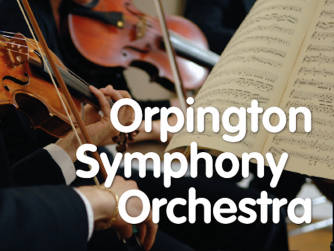Details
All Saints Church
44 Bark Hart Road
Orpington
London
BR6 0QD
England
Programme
Felix Mendelssohn – Overture 'Ruy Blas', Op.95
Anatoly Lyadov – Polonaise in C major for orchestra 'In Memory of Pushkin', Op.49 (1899)
Anatoly Lyadov – Polonaise in D major for orchestra, Op.55 (1902)
Anatoly Lyadov – The Enchanted Lake for orchestra, Op.62 (1909)
Pyotr Tchaikovsky – Symphony no.1 'Winter Daydreams', Op.13
Performers
Raymond Lewis – Conductor
Sarah Douch – Leader
Orpington Symphony Orchestra
Other concerts in this Series (+)
Programme Note
Ruy Blas is a tragic drama by Victor Hugo. It was the first play presented at the Théâtre de la Renaissance and opened on November 8, 1838. Though considered by many to be Hugo’s best drama, the play initially met with only average success. Felix Mendelssohn, after reading (and at first hating) the play, was commissioned to write a Concert Overture based on it, his Opus 95
He wrote to his mother about it:
“I read the play, which was so absolutely ghastly and beyond contempt that you wouldn’t even believe it, and I decided that I didn’t have time to compose an overture and would only give them the song.”
“…the people came to me, thanked me profusely for the song, and said that it was too bad that I hadn’t written the overture. But they said they realize that one needs time to write a piece like that, and that next year they would try to give me more notice. That rankled me. “
“I gave it some thought that evening and began my score. Wednesday was rehearsal all morning, Thursday a concert, but I still had the overture to the copyist early on Friday, rehearsed it Monday first three times in the concert hall, then once in the theater, and then that evening the infamous piece was performed, and it was all so much more fun than I’ve ever had writing one of my pieces. “
Anatoly Konstantinovich Lyadov was a Russian composer, teacher and conductor. He was born in St. Petersburg in 1855 into a family of eminent Russian musicians. He was taught informally by his step-father Konstantin Lyadov from 1860 to 1868, and then in 1870 entered the St. Petersburg Conservatory.
His natural musical talent and technical facility was highly thought of by many contemporaries and he became associated with the group of composers known as The Mighty Handful. His unreliable nature stood in the way of his advancement however.
Lyadov was drawn to intensely Russian subjects. Much of his music is programmatic; for example his tone poem The Enchanted Lake Op. 62 exhibits an exceptional flair for orchestral tone color.
The three pieces we’ll be playing are from his later years of composing:
Polonaise in C major ("In Memory of Pushkin") for orchestra, Op. 49 (1899)
Polonaise in D major for orchestra, Op. 55 (1902)
The Enchanted Lake for orchestra, Op. 62 (1909)
Pyotr Ilyich Tchaikovsky wrote his Symphony No. 1 in G minor, Winter Daydreams (or Winter Dreams) Op. 13, in 1866, just after he accepted a professorship at the Moscow Conservatory: it is his earliest notable work.
His brother Modest claimed this work cost him more trial and suffering than any of his later works. Tchaikovskey was under great strain, with a previous negative review of his Cantata diminishing his moral, and work on this piece was sluggish.
He sought the opinion of two of his former teachers, but both men were very dismissive of the symphony, and requested changes. Tchaikovsky complied, but later - after further poor reception - discarded all but one of their revisions. The symphony was finally performed in full February 15, 1868 to great success. The symphony was not performed again for 15 years.

 Your events at Classical Events
Your events at Classical Events

